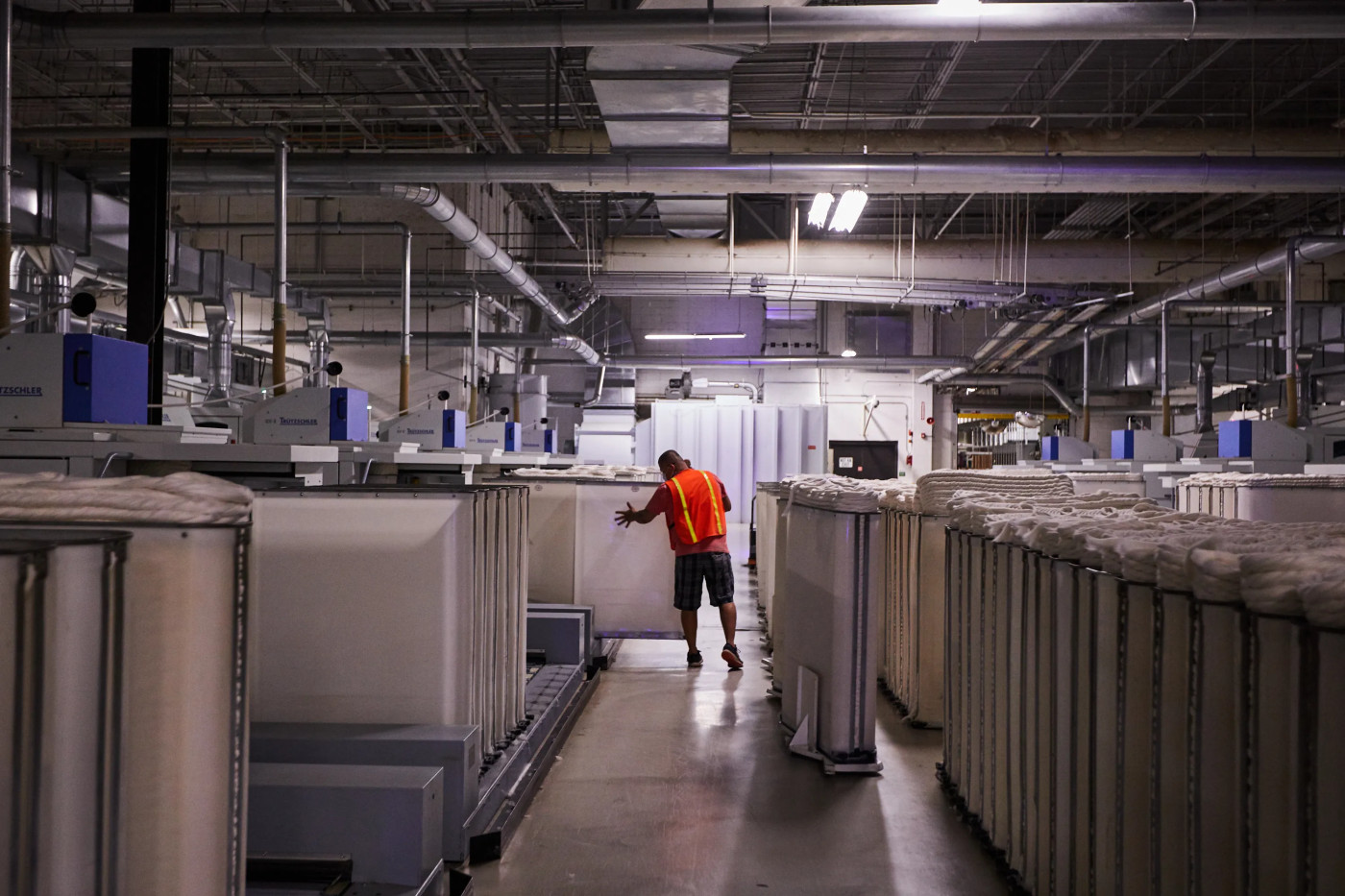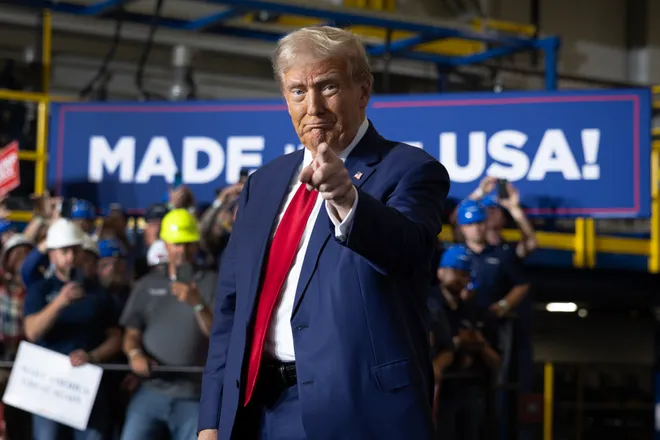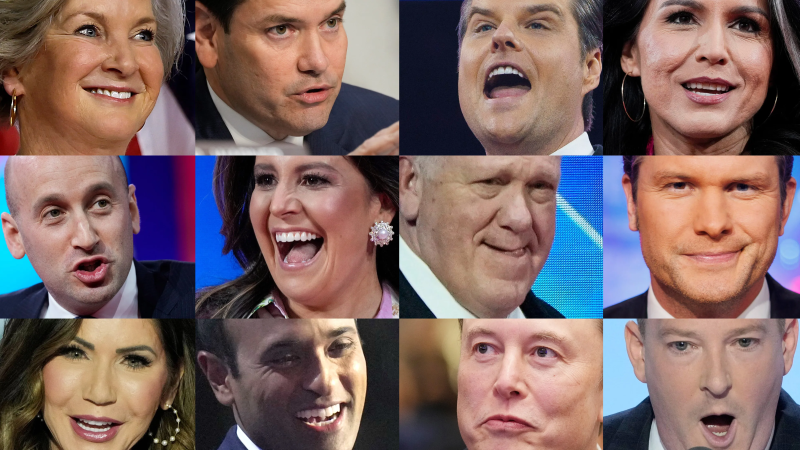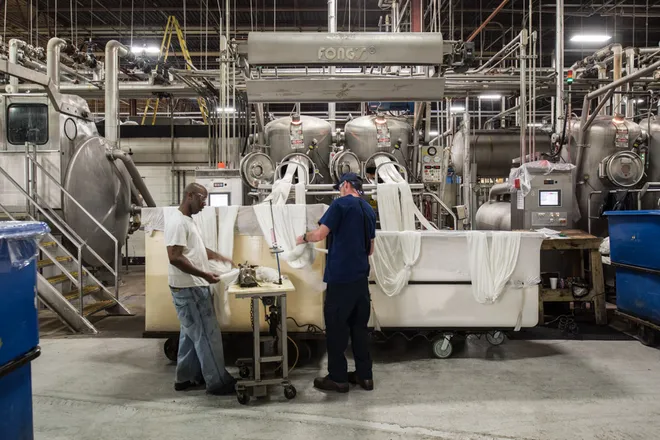
Trump wants more tariffs. What that means for US manufacturers.
President-elect Donald Trump has promised a "manufacturing renaissance" upon his return to the White House, pledging tariffs to bolster companies that make products in the United States.
The idea is to drive up the price of imported goods to make American-made products more appealing. Trump's plans have been heralded by some domestic manufacturers competing against low-cost goods from countries like China, but economists warn tariffs can be a double-edged sword by driving up inflation and interest rates.
“It does offer a measure of protection” for manufacturers, said Gary Schlossberg, global strategist at the Wells Fargo Investment Institute. But “depending on where you are in manufacturing, that (inflation) could work against you.”

Concerns over inflation
Trump placed tariffs on solar panels, washing machines and certain metals during his first administration. President Joe Biden kept most of those tariffs in place and imposed new tariffs on additional Chinese goods like electric vehicles and semiconductors. Now, Trump is proposing more aggressive tariffs ranging from 60% to 100% on Chinese goods and a universal tariff of up to 20% on imports from all other countries.
"We’ll lead an American manufacturing boom," Trump told voters in a speech in Georgia in September. "When they have to pay tariffs to come in, but they have incentive to build here, they’re going to come roaring back."
The catch, according to economists, is that tariffs can lead to higher interest rates and reignite inflation. Autozone and Stanley Black & Decker have already said the companies would pass on increased operating costs to consumers.
The Peterson Institute for International Economics, a nonpartisan think tank, said the tariffs would cost a typical American household more than $2,600 a year. Another report from the National Retail Federation, a retail trade group, said the tariffs could cost American consumers $46 billion to $78 billion in spending power each year. The price of $50 athletic shoes would jump to as high as $64, and a $2,000 mattress and box spring set would cost anywhere from $2,128 to $2,190, according to the report.
“Most of us feel the tariff proposals are detrimental to the economy as a whole, even though they may benefit certain types of manufacturing at least for a time,” Schlossberg from the Wells Fargo Investment Institute said.
Matt Bigelow, president of Vermont Flannel, said inflation is a “real concern” for the apparel manufacturing company, which cuts and sews fabric imported from Europe to create shirts, robes and other products.
“I think we’ve all, to a certain extent, experienced the effect of inflation over the last few years," he told USA TODAY. "If tariffs do indeed ultimately increase consumer prices, then I think that is a concern."
What are tariffs?What to know about Donald Trump's plan to tax imports
Stephen Liquori, founder and CEO of Massachusetts-based apparel manufacturer Goodwear USA, said Trump's tariff plans would likely boost his business by raising prices on imported products and putting them on an "even playing field." But he's not convinced tariffs are a good idea, and he expects those costs to be passed on to American consumers.
"There are a lot of things we can’t make or don’t make here and probably will never make. I’m realistic about that. I’m not going to say, ‘Make everything in America.’ It’s a global economy," he said.
Optimism for new jobs
Despite inflation anxieties, some U.S. manufacturers are looking forward to expanded tariffs.
“It’s going to be great for all the American factories throughout the United States,” said Drew Greenblatt, president of Marlin Steel, a wire and sheet metal products manufacturer that sources American steel.
Trump's 25% tariff on certain steel imports during his first administration didn't help Marlin Steel because it excluded fabricated steel from China, Greenblatt said, but he's confident Trump's next round of tariffs will be a boon. If tariffs play out the way he’d like, he anticipates needing to double his staff of 115.
“So many jobs I lose because the price-sensitive purchasing manager gives the job to the Chinese vendor rather than us," he said. “I’m going to start winning all those jobs. This is going to be very good for the American factory worker.”
A universal 10% tariff could create 2.8 million jobs, according to one study from pro-tariff trade group the Coalition for a Prosperous America. Another study from nonpartisan think tank the Brookings Institution in 2020 found tariffs during Trump’s first administration appeared to create several thousand jobs in the steel industry, but gains in manufacturing sectors competing with imports were “more than offset” by losses in industries that relied on imports or faced retaliatory tariffs on exports.

Bayard Winthrop, founder and CEO of apparel manufacturer American Giant, said he’s in favor of rebalancing trade with China and other international trade partners through tariffs. He just wants to see it done methodically and mindfully.
If Trump announced a universal 20% tariff on day one, “that would be devastating,” Winthrop said. But “I don’t think that’s where we’re going to land. I think where we’re going to land is a gradual increase over time of tariffs, and I think that posture I am supportive of.”

After its launch in 2012, San Francisco-based American Giant has grown into one of the largest American clothing manufacturers, sourcing all of its materials from within the country. Winthrop said tariffs would be good for the company but also help boost the American middle class by offering more factory work.
“(There will be) some increase in costs – that's the price you pay – but the benefit is it will begin to put in place some industrial capability in the United States that I think is desperately needed,” he said. “I think it’s needed for jobs. I think it’s needed for middle, industrial class and lower-skilled workers all over the country.”
Scott Paul, president of the Alliance for American Manufacturing, has also advocated for a continued “strategic application” of tariffs.
“The idea of escalated tariffs on some Chinese products has merit," he said. "And if we’re looking to either decouple or derisk our economy from China, that’s an important policy step we have to take.”

